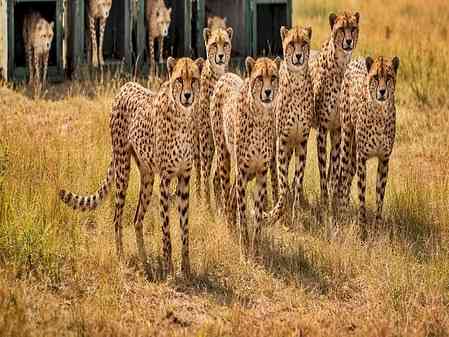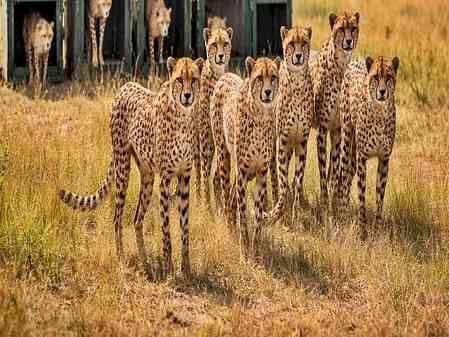Natural Disasters Creating Havoc Amidst Ecological Imbalance
Torrential rains, cloudbursts, floods, tsunamis, earthquakes, and landslides are increasingly creating an atmosphere of havoc across the globe. These natural disasters, coupled with ecological imbalance, are affecting even the most developed nations.

Torrential rains, cloudbursts, floods, tsunamis, earthquakes, and landslides are increasingly creating an atmosphere of havoc across the globe. These natural disasters, coupled with ecological imbalance, are affecting even the most developed nations.
Recently, the United States — including states like New York and Texas — experienced unexpected flash floods. Even countries in the Middle East are witnessing heavy rainfall, an unusual phenomenon in the region, leading to widespread disruption.
In India, several rivers are in spate due to continuous and unexpected rainfall. States like Himachal Pradesh and Uttarakhand are severely affected by cloudbursts and landslides, resulting in significant damage and hardship for local residents. Northern and Eastern India are also facing similar threats, as swollen rivers continue to overflow. Rajasthan, once known for its water scarcity, is now grappling with floods — a drastic shift from the past.
Interestingly, this shift in Rajasthan is also a result of positive environmental efforts by the local population. Widespread rainwater harvesting initiatives and sapling plantation drives have brought about noticeable environmental changes. Mount Abu, for instance, witnessed a hailstorm a few years ago — a rare occurrence in the region.
Global warming and climate change are key contributors to these alarming changes. Melting glaciers are raising sea levels, while human activities — such as deforestation, hill cutting for road widening, and rampant construction — are accelerating ecological degradation. In the plains, expressway and highway development has also led to massive tree cutting, reducing green cover and disturbing natural ecosystems.
It is high time we take responsibility. Every individual should pledge to plant at least one fruit-bearing sapling this year. These trees will not only offer shade and food to birds and insects but also help restore the ecological balance.
Global warming and climate change are not distant threats — they are real, immediate, and increasingly dangerous. Planting more trees and conserving natural resources are small steps with big impacts. Let us collectively work toward creating lush green jungles that offer a safe haven to animals, birds, and future generations.
— Rajat Kumar Mohindru
Journalist, Jalandhar City
(Views are personal)



 Rajat Kumar
Rajat Kumar 










